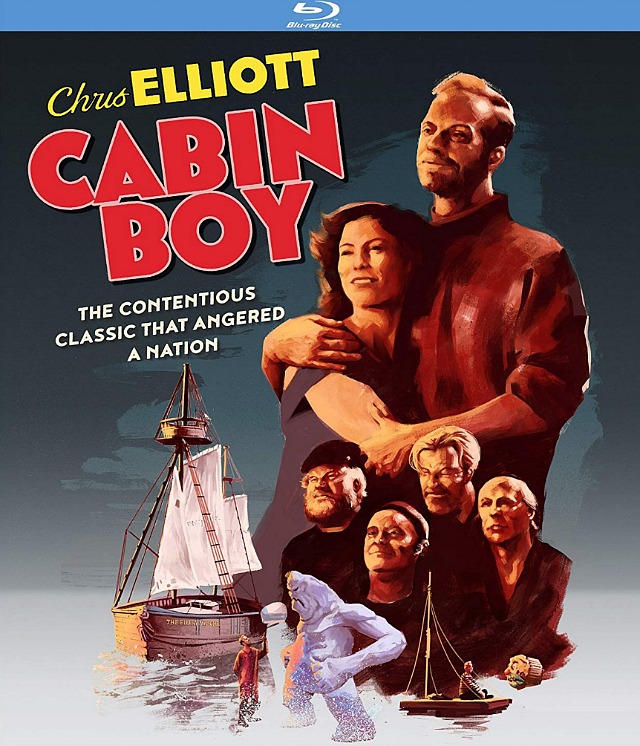Or I may have watched a half-hour’s worth before discreetly slipping out of the screening room. Or I may have seen the whole thing and then discharged it from my memory. This morning I watched a couple of clips (I love the David Letterman scene). The fact that I can’t recall says something in itself. Ditto the fact that the cover of Kino Lorber Bluray describes Cabin Boy as “the contentious classic that angered a nation.”
I was, however, somewhat taken by Michael Tedder’s 12.5 Ringer piece, “The Beautiful, Inspirational Disaster of Cabin Boy, 25 Years Later.” Here’s the best portion:
“Though flawed, Cabin Boy is a cinematic experience like nothing else, and one that has been extremely important to the development of American comedy.

“It’s often said that Mick Jagger failed to become a soul singer, and in the process became one of the greatest voices of rock music. Adam Resnick and Chris Elliott failed to make a big-budget Hollywood comedy, and in the process made a surreal, anarchist experience.
“It looks and feels wrong in a great way, in a way that a more technically accomplished director could never hope to achieve, much as no conventionally ‘great’ singer could ever hope to match the raw emotion of Daniel Johnston’s ‘Some Things Last a Long Time.’
“The film holds a mesmerizing power, from the contrast to the surrealistically fake ocean and old-timey garb of Elliott’s shipmates, played by character actors like Brian Doyle-Murray, and anachronistic elements like a limo and a microwave that are never commented on. The special effects are so delightfully chintzy, especially whenever the cuckold giant shoe salesman shows up. The jokes always arrive at the wrong time and never do what you expect them to do, such as when a giant cupcake spits tobacco on Elliott, and then disappears without explanation.
“[And} Elliott gives a fully committed performance, nailing the stunted man-child archetype years before Will Ferrell would popularize it, and using his posture and awkward gait to fully sell Mayweather’s metamorphosis into a Cabin Man.
“The careers of Elliott and Resnick are a synecdoche for American comedy’s evolution in the past several decades, widely under-appreciated but key to the development of what would become known at alt-comedy. In the ’80s, they helped David Letterman’s knowing detachment become the accepted language of smart-asses everywhere, often providing his show with the loopy hostility the host was too dry to provide himself.
“With their early-’90s TV show Get a Life, they took part in the beginning of the sitcom’s evolution from a provider of mass-market repetitive comfort to an engine of rapid-fire absurdity aimed at a boutique audience, a model that shows like 30 Rock would benefit from. And with Cabin Boy, they incepted the idea that a joke didn’t have to make sense to be hilarious—in fact, it could be funnier if it didn’t.”

